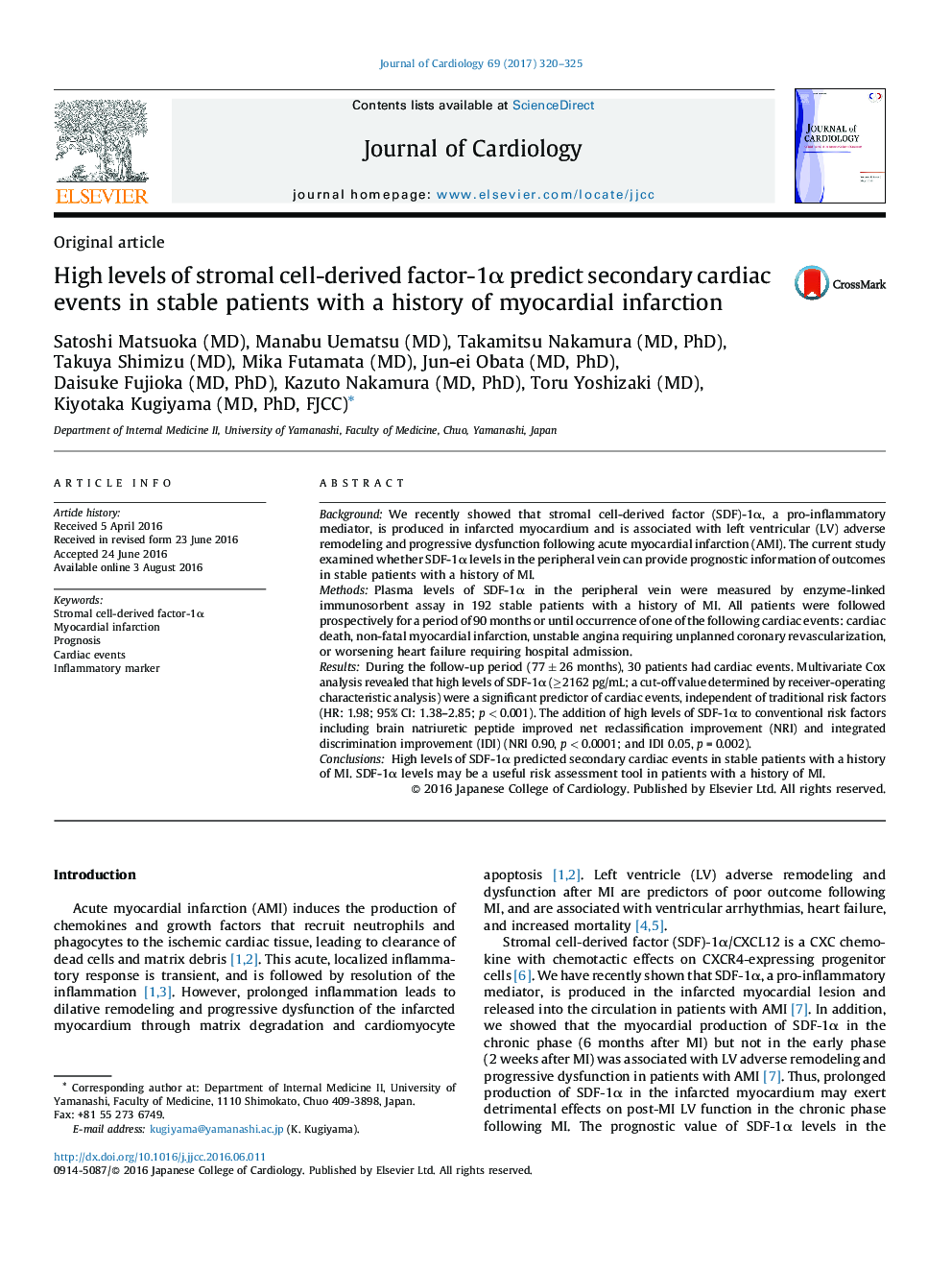| Article ID | Journal | Published Year | Pages | File Type |
|---|---|---|---|---|
| 5614758 | Journal of Cardiology | 2017 | 6 Pages |
BackgroundWe recently showed that stromal cell-derived factor (SDF)-1α, a pro-inflammatory mediator, is produced in infarcted myocardium and is associated with left ventricular (LV) adverse remodeling and progressive dysfunction following acute myocardial infarction (AMI). The current study examined whether SDF-1α levels in the peripheral vein can provide prognostic information of outcomes in stable patients with a history of MI.MethodsPlasma levels of SDF-1α in the peripheral vein were measured by enzyme-linked immunosorbent assay in 192 stable patients with a history of MI. All patients were followed prospectively for a period of 90 months or until occurrence of one of the following cardiac events: cardiac death, non-fatal myocardial infarction, unstable angina requiring unplanned coronary revascularization, or worsening heart failure requiring hospital admission.ResultsDuring the follow-up period (77 ± 26 months), 30 patients had cardiac events. Multivariate Cox analysis revealed that high levels of SDF-1α (â¥2162 pg/mL; a cut-off value determined by receiver-operating characteristic analysis) were a significant predictor of cardiac events, independent of traditional risk factors (HR: 1.98; 95% CI: 1.38-2.85; p < 0.001). The addition of high levels of SDF-1α to conventional risk factors including brain natriuretic peptide improved net reclassification improvement (NRI) and integrated discrimination improvement (IDI) (NRI 0.90, p < 0.0001; and IDI 0.05, p = 0.002).ConclusionsHigh levels of SDF-1α predicted secondary cardiac events in stable patients with a history of MI. SDF-1α levels may be a useful risk assessment tool in patients with a history of MI.
